Caring for your prosthetic is an essential part of ensuring its longevity, functionality, and comfort. Whether you’re new to prosthetic use or have been relying on one for years, it’s easy to develop habits that, while unintentional, may negatively impact your device’s performance or your overall experience. Avoiding these common mistakes can help you get the most out of your prosthetic while protecting your investment and maintaining your mobility.
In this article, we’ll explore some of the most frequent errors prosthetic users make, why they occur, and how to avoid them. Let’s ensure you’re caring for your prosthetic with confidence and precision.
Neglecting Regular Cleaning
One of the most common mistakes prosthetic users make is failing to clean their device regularly. Cleaning isn’t just about hygiene; it’s a fundamental step in keeping your prosthetic functioning properly and extending its lifespan.
Dirt, sweat, and oils from your skin can accumulate in the socket, liners, or other components, leading to unpleasant odors, skin irritation, and even material degradation.
Why Cleaning Matters
The socket, which comes into direct contact with your residual limb, is especially prone to buildup.
Without regular cleaning, bacteria and fungi can thrive in the warm, enclosed environment, causing infections or skin conditions that make wearing your prosthetic uncomfortable—or even impossible.
Additionally, dirt and debris can compromise the fit of your prosthetic, creating pressure points or friction.
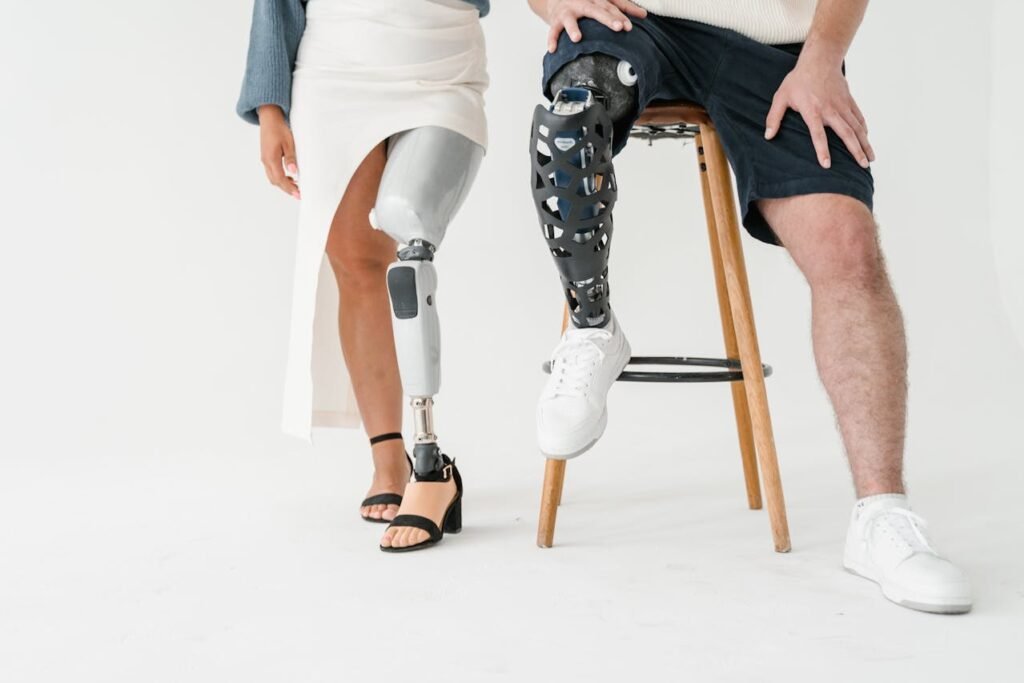
How to Avoid This Mistake
To prevent these issues, incorporate cleaning into your daily routine. Use mild soap and warm water to wipe down the socket and liners, ensuring all residue is removed. Let all components dry completely before wearing the prosthetic again, as moisture can exacerbate bacterial growth.
At Robobionics, we provide clear instructions for cleaning all our prosthetics, including advanced devices like Grippy™, to make this process simple and effective.
Skipping Routine Inspections
Another common oversight is neglecting to inspect your prosthetic regularly for signs of wear and tear. While prosthetics are designed to be durable, daily use inevitably takes its toll on components like joints, straps, and sockets. Failing to catch early signs of damage can lead to more significant issues that are costly to repair and may leave you without a functioning device.
Why Routine Checks Are Crucial
Over time, even small issues—like a loose screw or a crack in the socket—can grow into bigger problems. For instance, a minor misalignment in a lower-limb prosthetic can affect your gait, causing discomfort or even injury. Similarly, worn straps or frayed suspension sleeves can compromise the stability of your prosthetic, making it less secure and harder to use.
How to Stay Vigilant
Make it a habit to visually inspect your prosthetic every day, particularly after activities that involve extensive movement or exposure to challenging environments.
Look for visible damage, listen for unusual noises during use, and pay attention to how the device feels. If something seems off, consult your prosthetist before the problem worsens.
At Robobionics, we emphasize the importance of early detection and encourage users to schedule regular check-ups to ensure their devices remain in optimal condition.
Using Harsh or Inappropriate Cleaning Products
Some prosthetic users, in an effort to clean thoroughly, turn to strong cleaning agents or abrasive materials. While the intention is good, these products can cause significant damage to your prosthetic’s materials, affecting both its durability and performance.
Understanding Material Sensitivity
Prosthetics are often made from specialized materials designed to balance strength, flexibility, and comfort.
Harsh chemicals, such as bleach or alcohol-based cleaners, can degrade these materials over time, causing discoloration, cracking, or weakening of the components. Abrasive tools, like scouring pads, can scratch or roughen surfaces, making them less comfortable to wear.
Choosing the Right Approach
Stick to manufacturer-recommended cleaning products, which are designed to be gentle yet effective. A simple combination of mild soap and warm water is sufficient for most prosthetics.
For users of advanced devices like Grippy™, Robobionics provides detailed care guidelines to ensure that both mechanical and electronic components are cleaned safely.
Ignoring Changes in Fit
As your body changes over time—due to weight fluctuations, muscle growth, or natural adjustments in your residual limb—the fit of your prosthetic may also change. Ignoring these changes is a common mistake that can lead to discomfort, reduced functionality, and even injury.
The Impact of Poor Fit
A poorly fitting prosthetic can cause a host of issues, from skin irritation and pressure sores to difficulty performing everyday activities. It can also affect your posture or gait, leading to strain on other parts of your body, such as your back, hips, or shoulders.
Taking Action
If you notice discomfort, slipping, or a lack of stability in your prosthetic, it’s important to address these issues promptly. Temporary adjustments, like using prosthetic socks to improve the fit, can provide short-term relief.
However, long-term changes should always be handled by a prosthetist, who can evaluate whether the socket needs resizing or other modifications.
At Robobionics, we encourage regular follow-ups to ensure your prosthetic fits as comfortably and securely as possible.
Overlooking Skin Health
The health of your skin plays a vital role in your prosthetic experience. Many users make the mistake of focusing solely on the device itself, neglecting the condition of the residual limb. However, skin irritation, infections, and pressure sores can quickly make wearing a prosthetic uncomfortable—or even impossible.
The Connection Between Skin and Prosthetic Performance
The skin is the direct interface between your body and the prosthetic. If it becomes irritated or damaged, it not only affects your comfort but can also compromise the stability of the socket. For example, swollen or broken skin may lead to improper fit, increasing friction and further exacerbating the issue.
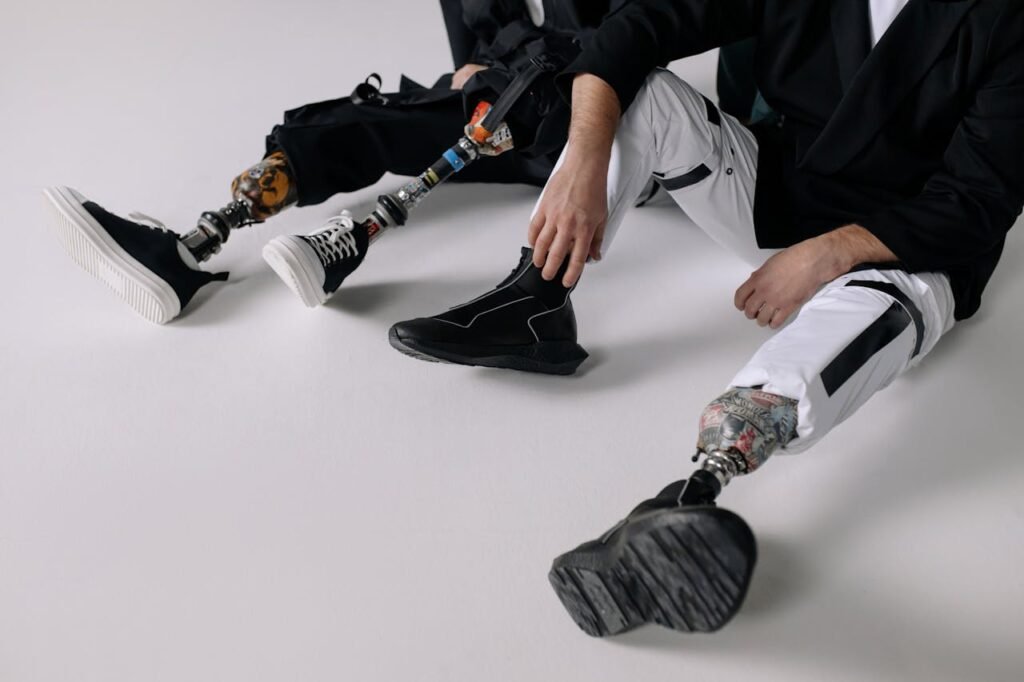
How to Prioritize Skin Care
To keep your skin healthy, clean your residual limb daily with mild soap and water, ensuring it is thoroughly dried before wearing your prosthetic. Moisture trapped under the socket can lead to bacterial or fungal growth, so it’s crucial to address sweating promptly.
Pay close attention to any redness, irritation, or unusual sensations. These could be early signs of problems like friction burns or pressure sores. If you spot any issues, take a break from wearing the prosthetic and consult your prosthetist for advice.
At Robobionics, we often recommend hypoallergenic liners or moisture-wicking materials for users prone to skin issues. These solutions create a more comfortable barrier between the skin and the socket, reducing the risk of irritation.
Disregarding Routine Maintenance
Some users mistakenly believe that prosthetics are “set it and forget it” devices that require little upkeep beyond cleaning. This misconception can lead to avoidable problems, as even the most advanced prosthetics require regular maintenance to stay functional and reliable.
Why Maintenance Is Essential
Over time, small issues like loose screws, worn joints, or misaligned components can build up, affecting the prosthetic’s performance. For bionic devices, software updates and recalibration may also be needed to ensure sensors and motors work seamlessly. Neglecting these aspects can result in decreased efficiency and potentially costly repairs.
Staying on Top of Maintenance
To avoid these issues, schedule regular check-ups with your prosthetist. During these visits, they can inspect your device, tighten or replace parts as needed, and recalibrate any electronic components.
At Robobionics, we provide ongoing support to all our users, helping them navigate the maintenance process with confidence.
For at-home care, familiarize yourself with the basic maintenance tasks recommended for your specific device. This could include lubricating joints, checking fasteners, or cleaning electronic contact points. Keeping a simple log of maintenance activities can also help you stay consistent and organized.
Failing to Adapt to Environmental Conditions
Environmental factors, such as heat, humidity, or dust, can significantly impact the condition of your prosthetic. Ignoring these conditions is a common mistake that can lead to unnecessary wear and tear or even damage to your device.
How the Environment Affects Prosthetics
In hot or humid climates, excessive sweating can cause discomfort and increase the risk of bacterial growth in the socket.
Similarly, dusty environments can cause debris to accumulate in joints or electronic components, reducing their efficiency. For bionic prosthetics, moisture from rain or condensation can interfere with sensors or circuitry.
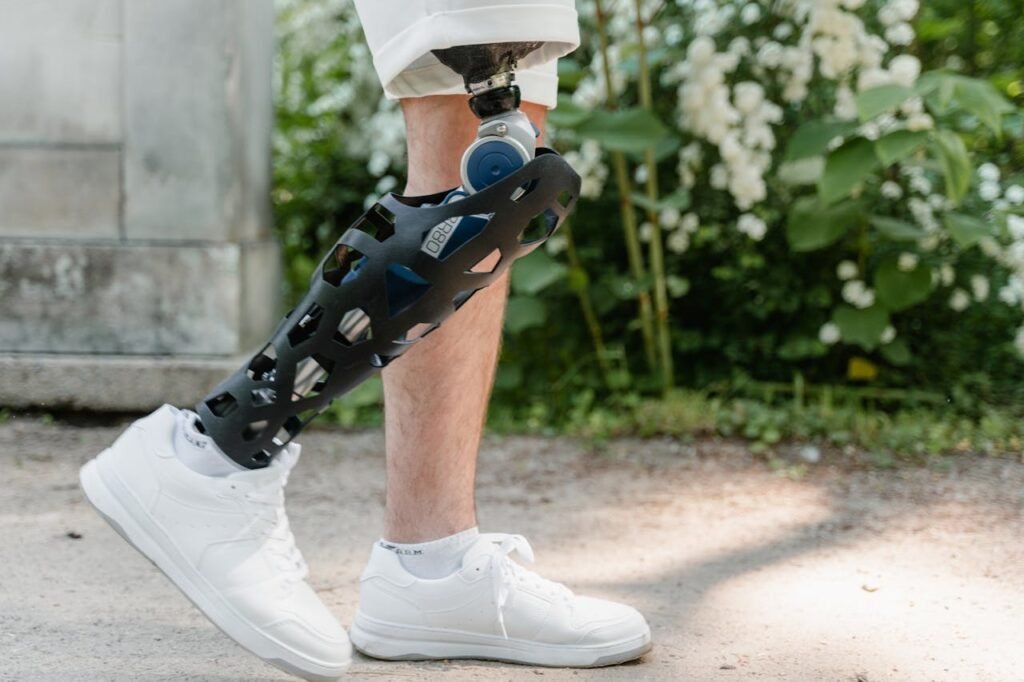
Adjusting Your Care Routine
If you live in a humid or dusty area, consider cleaning your prosthetic more frequently to prevent buildup. For bionic devices, ensure they are stored in a cool, dry place when not in use. Investing in protective covers or moisture-resistant liners can also help shield your prosthetic from environmental stressors.
At Robobionics, we design our devices with durability in mind, using materials that resist wear in challenging environments. However, we still recommend proactive care to maximize the longevity and performance of your prosthetic.
Attempting DIY Repairs Without Guidance
While some minor maintenance tasks can be performed at home, attempting significant repairs without proper knowledge or tools is a mistake that can worsen the problem.
The Risks of DIY Repairs
Prosthetics are intricate devices that require precision engineering. Incorrect repairs can lead to misaligned components, reduced functionality, or even damage to the device. For bionic prosthetics, tampering with electronic systems without expertise can void warranties or create safety risks.
Knowing When to Seek Help
If your prosthetic requires a repair beyond simple tasks like tightening screws or cleaning, it’s best to consult a professional. Prosthetists have the training and tools needed to address complex issues and ensure your device is restored to optimal condition.
Robobionics offers comprehensive repair services, including quick diagnostics and part replacements. Our goal is to provide users with reliable solutions while minimizing downtime.
Ignoring Changes in Activity Levels
Your activity level can directly affect how your prosthetic performs and what kind of care it requires. However, many users fail to adjust their maintenance routine or consult their prosthetist when they experience changes in their daily activities.
How Activity Levels Affect Prosthetics
Increased physical activity, such as sports or extended walking, places additional strain on the prosthetic’s components. Over time, this can lead to faster wear, alignment issues, or discomfort. On the other hand, decreased activity may lead to changes in the residual limb, affecting fit and comfort.
Communicating With Your Prosthetist
If you’ve recently increased or decreased your activity level, let your prosthetist know. They can evaluate your prosthetic and recommend adjustments or modifications to accommodate your needs.
At Robobionics, we encourage open communication between users and prosthetists, ensuring the device supports their lifestyle effectively.
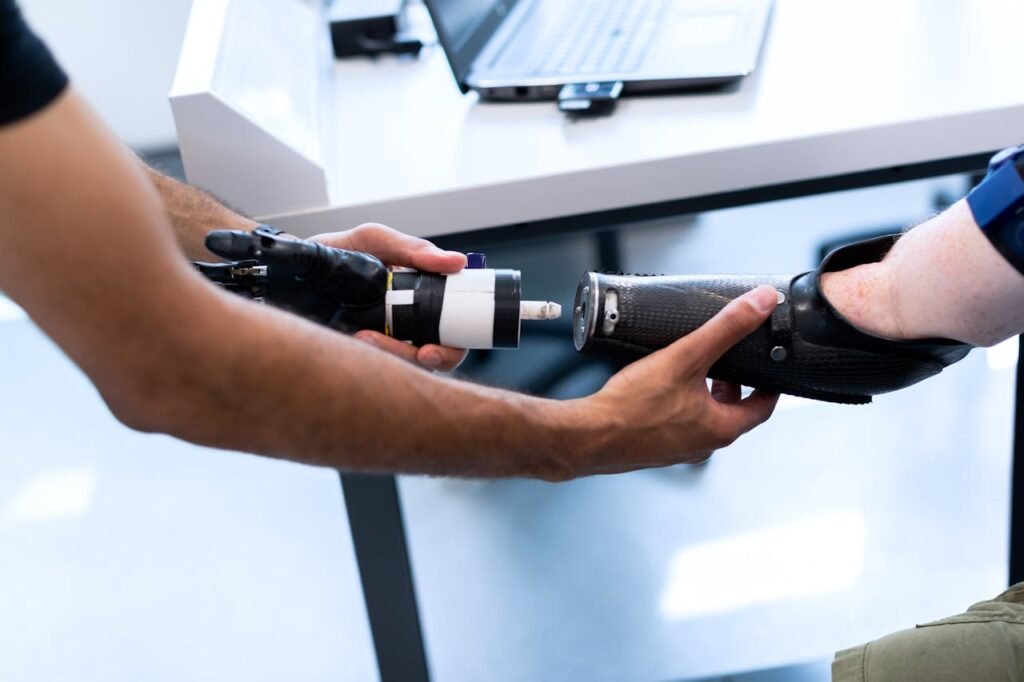
Mismanaging Prosthetic Batteries and Electronics
For users of bionic prosthetics, the electronic components, such as batteries, sensors, and motors, are the heart of the device’s functionality. However, mismanaging these components is a common mistake that can lead to reduced performance or even damage to the device.
The Role of Proper Battery Care
The battery powers essential functions of bionic devices, such as gripping or movement. Improper handling, such as overcharging or letting the battery fully deplete too often, can reduce its lifespan.
Additionally, using incompatible chargers or exposing the device to extreme temperatures can compromise the battery’s performance.
Best Practices for Electronics Maintenance
To maintain battery health, follow the manufacturer’s charging guidelines closely. Avoid leaving your device connected to a charger for extended periods after it’s fully charged, as this can lead to overheating or long-term degradation.
Similarly, store the prosthetic in a temperature-controlled environment to prevent damage from extreme heat or cold.
Regularly check the device’s software for updates, as these can improve responsiveness, accuracy, and battery efficiency. At Robobionics, we provide users with access to easy software update tools and guidance to ensure their bionic prosthetics, such as Grippy™, operate at peak performance.
Failing to Replace Components on Time
Every prosthetic has components with a finite lifespan. Liners, straps, suspension sleeves, and even some mechanical parts are designed to be replaced periodically. Delaying these replacements is a mistake that can reduce comfort and functionality.
Understanding Wear and Tear
Components like liners or straps endure daily stress from movement and contact with the skin. Over time, they can stretch, fray, or lose their effectiveness, which affects the prosthetic’s fit and stability. Similarly, mechanical parts like joints and fasteners can become loose or worn out, impacting mobility and alignment.
Scheduling Replacements
Consult your prosthetist about the recommended replacement schedule for your prosthetic’s components. Keeping track of these timelines ensures that you address wear and tear proactively, avoiding disruptions to your daily routine.
At Robobionics, we offer replacement parts for all our devices and make it easy for users to access the support they need. Whether it’s a new liner or a recalibrated joint, timely replacements help maintain your prosthetic’s reliability.
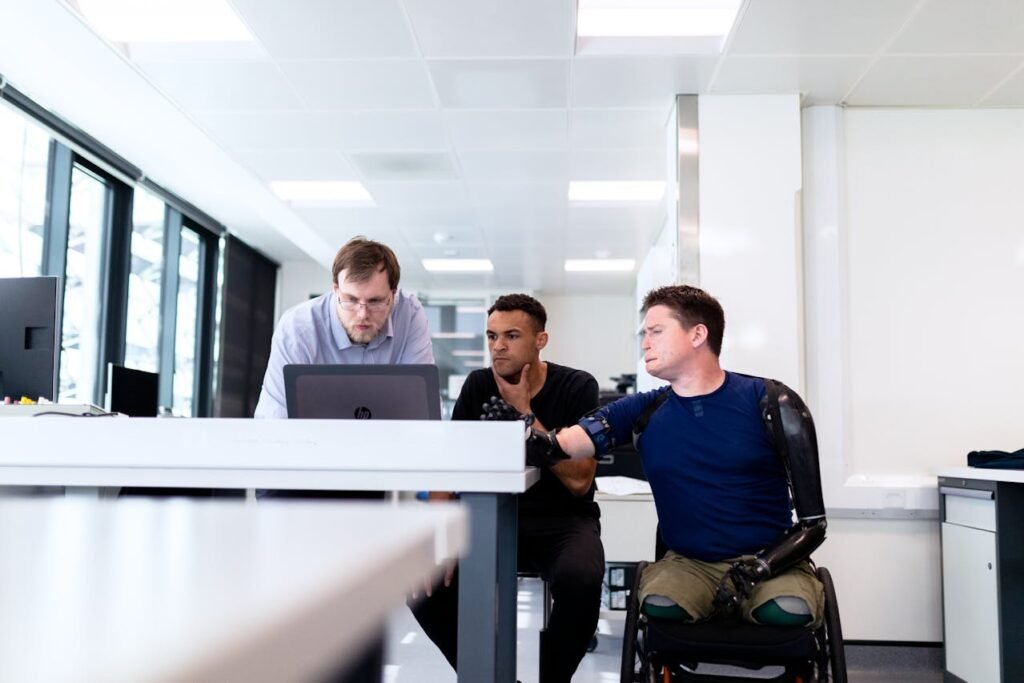
Overlooking the Importance of Follow-Ups
Routine follow-ups with your prosthetist are essential, yet many users neglect these appointments, especially if they aren’t experiencing immediate issues. Skipping follow-ups is a mistake that can result in unnoticed problems becoming major concerns.
Why Follow-Ups Matter
Follow-ups allow your prosthetist to evaluate the condition of your prosthetic, check its fit, and ensure that it meets your current needs. They can also identify early signs of wear, misalignment, or performance issues that you might not have noticed.
For bionic devices, follow-ups provide an opportunity to recalibrate sensors, test electronic components, and ensure software is up-to-date. Regular evaluations help optimize your device’s functionality and ensure a comfortable, efficient user experience.
Staying Consistent
Commit to attending follow-ups at least once or twice a year, even if everything seems fine. These proactive appointments can prevent future problems and give you peace of mind.
At Robobionics, we emphasize follow-ups as part of a comprehensive care plan, helping users maintain their prosthetics with ease.
The Hidden Value of Follow-Ups
One of the most strategic benefits of regular follow-ups is the ability to catch problems early. Over time, even subtle changes in the prosthetic or the residual limb can lead to discomfort, reduced mobility, or skin irritation.
These changes are often gradual, making them difficult for the user to notice. However, during a follow-up, a trained prosthetist can identify these small issues—such as a minor misalignment or signs of socket wear—and address them promptly.
For businesses, positioning follow-ups as a proactive measure rather than a reactive one can change how users perceive these appointments. By emphasizing how these visits save users time, discomfort, and potential costs in the long run, businesses can encourage greater compliance and build trust.
Adjusting to Lifestyle Changes
As users’ lives evolve, so do their prosthetic needs. Changes in activity levels, weight, or even occupation can significantly impact how a prosthetic performs.
A user who begins participating in high-impact activities, for instance, might require modifications to enhance the durability or functionality of their device. Similarly, a shift to a more sedentary lifestyle may require adjustments to ensure the prosthetic fits comfortably with reduced movement.
Follow-ups provide a structured way to evaluate these lifestyle changes and their impact on the prosthetic. Businesses can add value by integrating lifestyle assessments into follow-up appointments, helping users optimize their devices for current and future needs.
For example, Robobionics offers personalized consultations during follow-ups, tailoring adjustments to each individual’s unique requirements and goals.
Enhancing User Confidence
Many prosthetic users, especially those new to wearing a device, may feel uncertain about whether they’re maintaining their prosthetic correctly or using it to its full potential.
Follow-up appointments serve as an excellent platform to build user confidence. During these sessions, prosthetists can address user concerns, answer questions, and provide hands-on demonstrations for tasks like cleaning, minor maintenance, or proper wearing techniques.
For businesses, this is an opportunity to position follow-ups as a value-added service that empowers users. By making follow-ups a collaborative experience, where the user feels supported and educated, businesses can foster long-term loyalty.
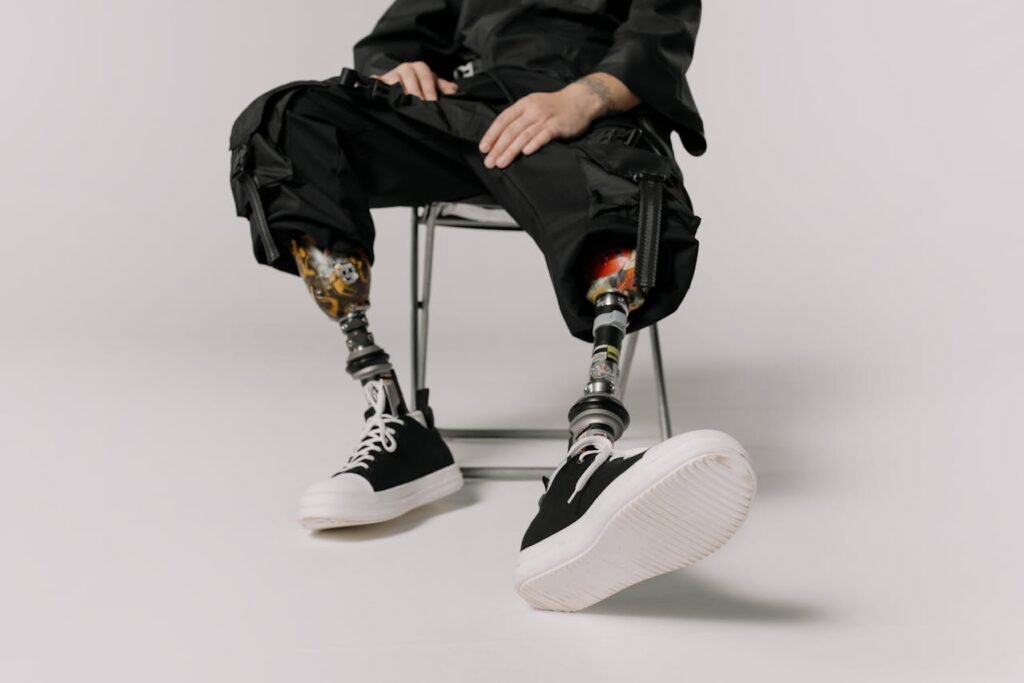
Streamlining the Follow-Up Process
One common barrier to attending follow-ups is convenience. Users may find it challenging to schedule appointments or travel to a clinic, particularly if they live in remote areas or have mobility concerns.
Businesses can address this by offering flexible solutions, such as telehealth consultations, mobile services, or streamlined scheduling systems.
For example, Robobionics leverages technology to make follow-ups more accessible. Users of devices like Grippy™ can benefit from virtual diagnostics for minor issues, allowing prosthetists to assess performance remotely. This approach not only saves users time but also ensures timely care for their devices.
Transforming Follow-Ups Into Engagement Opportunities
For prosthetics businesses, follow-ups are more than just routine appointments—they’re a chance to deepen client relationships and gather valuable feedback.
During these sessions, businesses can actively seek user input on their experience with the prosthetic, identify areas for improvement, and offer advice on optimizing its use. This feedback can drive innovation and ensure that the company remains responsive to its clients’ evolving needs.
Conclusion
Caring for your prosthetic requires a thoughtful and proactive approach. By avoiding common mistakes such as neglecting cleaning, ignoring changes in fit, or mismanaging electronics, you can ensure your device remains a reliable and comfortable part of your life.
At Robobionics, we are dedicated to supporting our users every step of the way. From personalized guidance during fittings to ongoing maintenance and support, we empower you to care for your prosthetic with confidence.
By addressing these mistakes and adopting best practices, you can protect your investment and enjoy the full benefits of your prosthetic for years to come.



